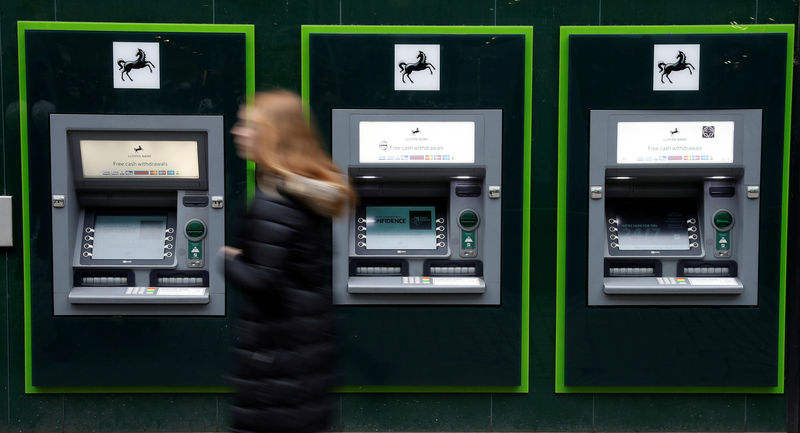Novo Nordisk, Eli Lilly fall after Trump comments on weight loss drug pricing
Investing.com -- Britain’s leading centre-left think tank has urged the government to levy a new tax on commercial banks, arguing they are receiving billions in interest payments from the Bank of England (BoE) on reserves that could otherwise support public services.
Shares in U.K. banks fell Friday, with the broader FTSE 350 Banks index losing 2.3% as of 08:00 GMT.
Lloyds Banking Group (LON:LLOY) led the losses, retreating 3.8%, followed by Barclays (LON:BARC), which slid 3.6%.
Metro Bank (LON:MTRO) fell 2.6%, NatWest Group (LON:NWG) 1.5%, Standard Chartered PLC (LON:STAN) 1.4%, and HSBC (LON:HSBA) 1.2%.
The Institute for Public Policy Research (IPPR) estimated that around £22 billion ($29.7 billion) a year flows to lenders through the BoE’s quantitative easing programme, which was originally introduced to stabilise the economy during the financial crisis but now benefits banks as interest rates have risen.
“What started as a programme to boost the economy is now a massive drain on taxpayer money,” said Carsten Jung, associate director for economic policy at the IPPR. “Public money is flowing straight into commercial banks’ coffers because of a flawed policy design.”
The think tank said taxing these interest payments would hand finance minister Rachel Reeves extra fiscal headroom, as she faces pressure to tighten the government’s books.
Reeves is expected to raise taxes again in the autumn budget, having already lifted employer levies last year, amid concern that her fiscal targets are slipping out of reach.
British banks hold large sums on deposit at the central bank, much of it created by the BoE’s bond-buying schemes. The BoE pays its policy rate on these balances, with higher interest rates now generating a windfall for lenders.
Any resulting losses for the central bank are covered by the Treasury, and therefore taxpayers.
Governor Andrew Bailey has consistently defended the current approach, calling it critical to ensure changes in official rates are passed through to households and businesses.
In June, he rejected renewed criticism of the BoE’s bond purchases and sales, which some politicians — including Reform UK’s Nigel Farage — have attacked as overly costly.
Earlier this year, Bailey and Reeves discussed the possibility that the central bank might earn income under a revised system for providing reserves, offsetting some of the losses from QE.
The IPPR’s proposal echoes calls made in recent years by others. Former deputy governor Paul Tucker argued in 2022 that ministers should reassess the policy of paying interest on banks’ reserves.
